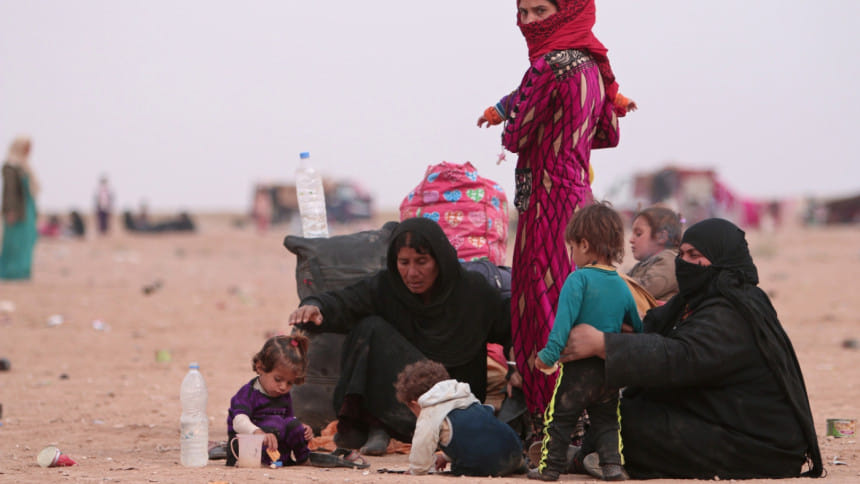No escape route for IS

Iraqi Shiia militias yesterday said they had launched an offensive towards the west of Mosul, an operation that would tighten the noose around Islamic State's Iraq stronghold but could inflame sectarian tension in the mainly Sunni region.
The battle for Mosul is expected to be the biggest in the 13 years of turmoil unleashed in Iraq by the 2003 US-led invasion which toppled former president Saddam Hussein, a Sunni Muslim, and brought Iraq's majority Shia Muslims to power.
A spokesman for the Shia militias, known as the Hashid Shaabi (Popular Mobilisation) forces, said thousands of fighters "started operations this morning to clean up the hotbeds of Daesh (Islamic State) in the western parts of Mosul".
The city is by far the largest held by the ultra-hardline Sunni Islamic State and its loss would mark their effective defeat in Iraq, two years after their leader Abu Bakr al-Baghdadi declared a cross-border caliphate in parts of Iraq and neighbouring Syria from the pulpit of a Mosul mosque.
The Shia militias aim to capture villages west of Mosul and reach the town of Tal Afar, about 55 km (35 miles) from the city, the Hashid spokesman said. Their goal is to cut off any option of retreat by Islamic State insurgents into neighbouring Syria or any reinforcement for their defence of Mosul.
The Iran-backed and battle-hardened paramilitaries bring additional firepower to the nearly two-week-old campaign to recapture Iraq's second largest city from the jihadist group.
Iraqi soldiers and security forces and Kurdish peshmerga fighters, backed by a US-led air coalition and thousands of Western military personnel, have been advancing in the last 13 days on the southern, eastern and northeastern fronts around Mosul, which remains home to 1.5 million people.
The United Nations has warned of a possible humanitarian crisis and a potential refugee exodus from Mosul - though the start of operations on the city's western flank could leave Mosul's civilians with no outlet to safety, even if they are able to escape Islamic State control.
Villagers from outlying areas around Mosul have told Reuters that women and children were being forced to walk as human shields alongside retreating Islamic State fighters as they withdrew into the city this week.
Iraqi and Western military sources say there had been debate about whether or not to seal off Mosul's western flank. Leaving it open would have offered Islamic State a chance to retreat, potentially sparing residents from a devastating, inner-city fight to the finish.
The International Organisation for Migration said on Saturday 17,520 people have been displaced so far during the Mosul operation - excluding thousands of people forced back into the city by Islamic State.
Targeting the Islamic State-held town of Tal Afar, close to Turkey and home to a sizeable ethnic Turkmen population with historic and cultural ties to Turkey, will alarm Ankara.
But before it was seized by Islamic State the town also had a strong Shi'ite presence, and its location on the road west to Syria gives it strategic importance to the Iranian-backed militias who have supported President Bashar al-Assad in Syria's five-year-old civil war.
Hashid spokesman Ahmed al-Assadi said Turkish forces, who are training Sunni tribal combatants in a camp northeast of Mosul to join the offensive against Islamic State, were in no position to obstruct the Shi'ite militia advance.
He also said the Popular Mobilisation forces, who have already fought in support of Assad in Syria, would cross the border into Syria to support him again once they had "cleared" Islamic State from their own country.

 For all latest news, follow The Daily Star's Google News channel.
For all latest news, follow The Daily Star's Google News channel. 



Comments